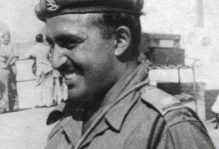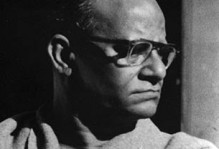Small Numbers Big Dreams : Toto from West Bengal
It is a fight for survival. The Toto tribe numbers have dwindled to 1300, they have high Thalessemia carrier rate, outsiders have dispossessed them of the best lands, and the Toto language is listed as highly endangered by UNESCO. They are only found in a tiny enclave called Totopara close to the Bhutanese border in the state of West Bengal. The clock is ticking on its extinction, but the community is making an effort to stop the clock. It is embracing education and new livelihood options. And there are portends that it is succeeding. The author of this article Sova Toto is the third woman graduate from the Toto tribe and is an example of how Toto tribe is rediscovering it. She did her primary schooling from Totopara Primary school. Her secondary and senior secondary schooling was from Govt Girls School, Alipurdoar. She did her graduation from Acharya Bajendranath Seal College, Coochbihar. Sova is now preparing for the WBPSC and dreams of being a Block Development Officer. We wish her all the luck. We are grateful to Sova for writing this exclusive article for Probashi. The original submission in Bengali has been translated to English by the Probashi editorial team. Photographs by Sankarjeet Biswas.
Sangitari yanko toita
Yangbi onangbi ekta loita
(Sun and the stars above in entourage
We live in such a beautiful village)
These first two lines from the popular song of the Toto tribe describes a beautiful village where the Totos live. This village is known as Totopara. Possibly not many people know about Totopara, and even still about the Toto tribe.
Totopara is a small settlement at the edge of the Torsa river delta on the border with Bhutan and about 22 kms from Madarihat town in West Bengal. Previously the administrative jurisdiction was Jalpaiguri district. The village after the administrative reorganisation falls under Alipurdoar district.
Totos are a primitive tribe and are found only in Totopara. There small numbers have raised concerns of their extinction. There are a number of myths amongst people regarding the Totos. Many think Totos are of lilliput size and live in houses on tree trunks. I have myself heard about this from many people. Whenever I hear such statements I counter by telling that I am myself a Toto. Those who donot know about the Totos , may I extend an invite to all of them to visit Totopara.
The livelihood of the Totos is mostly daily wage agricultural labour e.g. orange picking, ginger picking and carrying headloads. In this work both men and women work together. There is no discrimination between a boy and a girl, a man and a woman. During orange picking season, the day starts at 3.30- 4 am in the morning. The orange pickers as a group walk towards the orchards in the direction of Bhutan. They sing Toto songs, share daily gossip and enquire about the whereabouts during this morning walk to work. It is fun and gives a feeling of camaraderie.
Previously there were very low penetration of education amongst the Toto tribe, now it is on the rise. At Totopara the first woman graduate was Rita Toto who attained her BA degree three years back. After that was Sanchita and the third myself. There are more boys who have a graduate degree, but girls are catching up. The community now sends both girls and boys outside Totopara to places like Jalpaiguri and Alipurdoar for higher education. This is a welcome trend. When Rita Toto became the first graduate, the then Chief Minister of West Bengal, Buddhadev Bhattacharya had given her an award Ritadi is our role model and has made us proud. She has given us faith that the Toto people can also compete with the outside world. This confidence matters are lot to the new generation who are ready to take up the challenge. Most of Toto chiildren drop out of school because of economic reason. During holidays the students work as daily labourers and supplement the family income. Despite these bottlenecks the students continuye their education, which is itself something to celebrate.
I presently stay in Kolkata and am preparing for the West Bengal Public Service Comission examination. I know we have to walk the fine line between embracing modernity and preserving the Toto culture. As things stand today, we are suceeding. We have embraced modern education but still pray our Gods who signify nature like river, canals , mountains. We listen to Hindi songs but our best emotions are expressed in the Toto language. We go out of Totopara for education and livelihood, but come back to our village to get married and raise a family.
We might be small in numbers, but we have a big heart. I extend an invitation on behalf of the Toto tribe to all the readers of Probashi to visit Totopara. Do come and enjoy our hospitality.
Â
Editors Note: The 2010 graduating class of Prasanna Deb Womenâs College of Arts, Jalpaiguri had something unique. Its list of graduates in the Bachelor of Arts stream had the name of a Rita Toto a 22 year old girl from the Toto tribe. Rita is the first woman and fourth person from the Toto community to obtain a bachelor degree. From a humble family background with all the disadvantages of a first time learner and for someone who belongs to a primitive tribe, Ritaâs achievement is indeed outstanding. Rita has inspired more girls from the Toto tribe to emulate her achievement. In quick succession two more girls followed Ritaâs footsteps and obtained graduation degrees. These two girls, Sova (author of this article) and Sanchaita are now preparing for the West Bengal Public Service Commission examination and plan to become civil servants. If they were to crack the exam, this would be another first for the Toto community. Rita Toto is employed as a social worker with the Backward Classes Welfare Department, Govt of West Bengal. It is indeed heartening that this primitive tribal group considers education as its main tool to stem the looming threat of marginalisation. Many Toto children now go to school irrespective of gender. We can look forward to many more Ritas, Sanchaitas and Sovas from the Toto community in very near future.
Yunteko Kabro (Goodbye will see you again) is what you will hear a Toto speak when he/she bids farewell. But as the Toto numbers dwindle and as they are forced to assimilate in the surrounding majority which speaks Nepali or Hindi, the Toto language is facing a grim battle to survive. The Toto community has ensured that the young generation speak the language. But the question is for how long? Is it possible that the ingress of majority culture be stymied by the intensity with which the Toto cling on to their culture and language? We hope it will not be Yunteko Kabro to the Toto language. The newer generation like Sova Toto give us hope; they straddle their outside world with the traditional Totopara with ease. Maybe the language will survive and with it the distinct Toto culture





